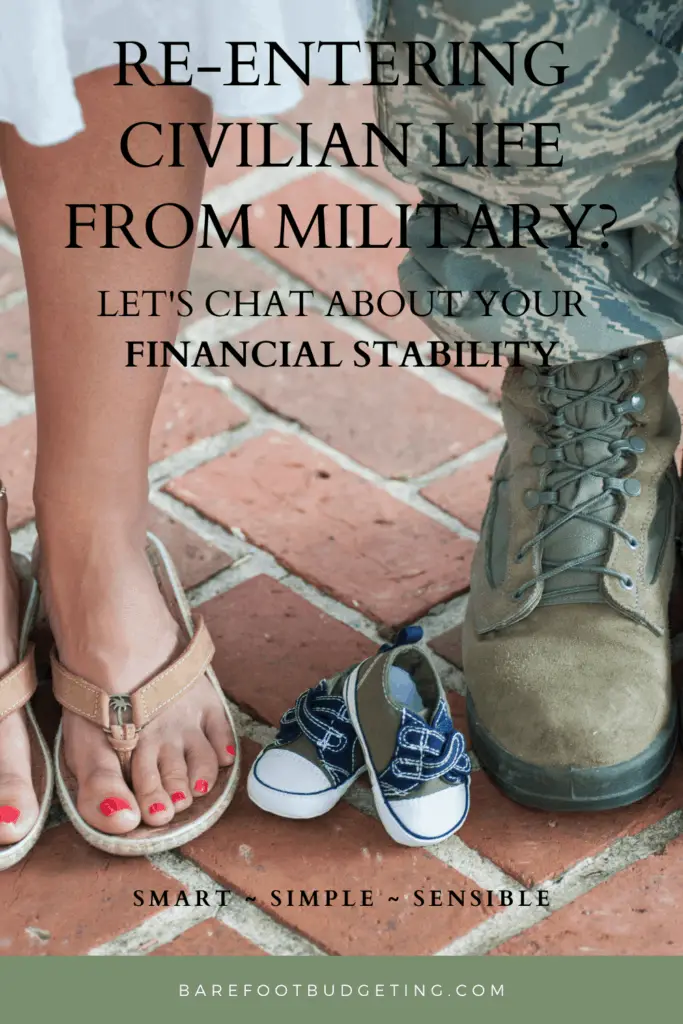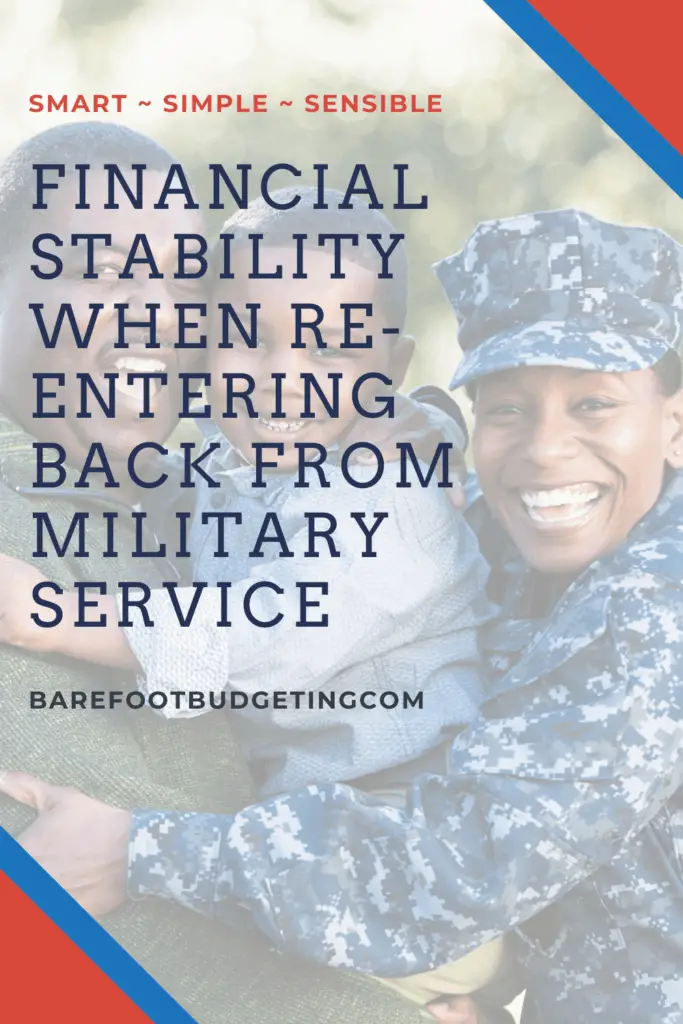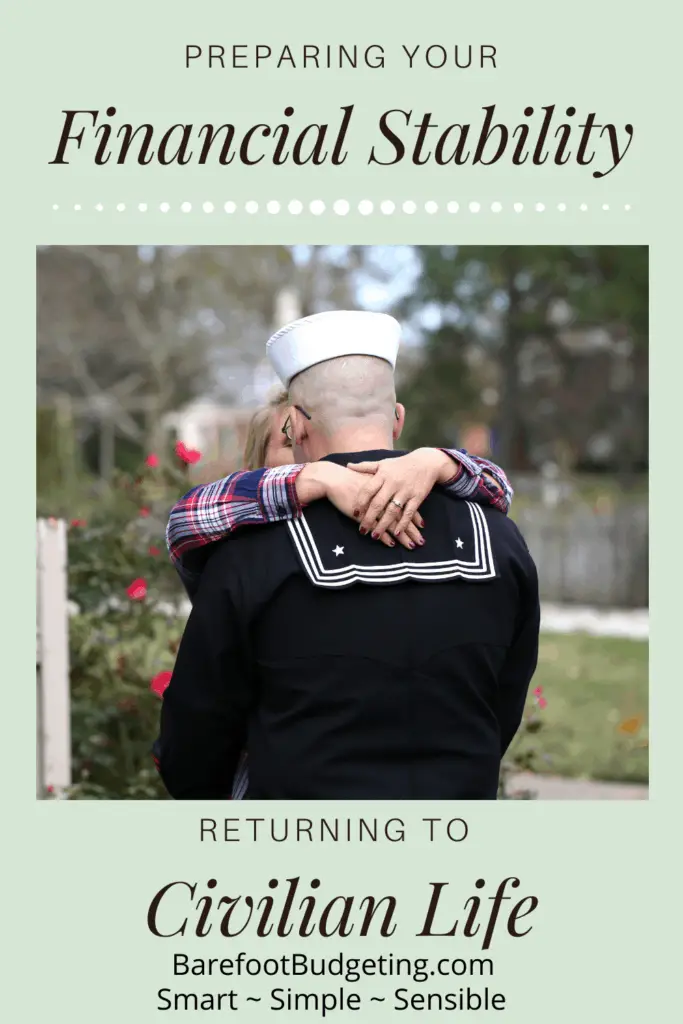*This post may contain affiliate links. As an Amazon Associate we earn from qualifying purchases.
**Guest Post**

Transitioning from active duty to civilian life comes with its challenges — finances being one of them. While it’s best to start getting your finances in order before you leave the military. You still have time to come up with a plan and lay a solid foundation for your future. Yes, even if you’ve already been discharged. Here are some practical tips to help you establish financial security. You and your loved ones so that you can thrive as a civilian.
Get Your Insurance Lined Up; An Important Part of Civilian Life
When you’re transitioning into civilian life, one of the most important preparations you can make is determining what types of insurance you and your family need. Here are a few common types of insurance, along with some brief information:

Auto Insurance
You can’t drive a vehicle without purchasing the minimum level of auto insurance in your state. With a loan on your vehicle, the lending institution will likely require a certain type of policy (typically full coverage). If you don’t have a loan, you will need to figure out what kind of coverage you need. For example, comprehensive coverage will help you replace your vehicle in the event of an accident. Also uninsured motorist coverage will protect you if the other driver does not have insurance.
Health Insurance
What if you suffer an injury or illness post-military and you don’t have health insurance? This can be catastrophic for your finances. After 20 years of active duty, you are eligible for insurance (Tricare). This is along with additional coverage from Veterans Affairs for any health conditions suffered while serving. If you’ve served fewer than 20 years it is different. You will need to find a plan on your own. Whether that’s starting from scratch, finding a job with healthcare benefits, or jumping on a spouse’s employer-provided plan. There are many options to start to investigate.
Life Insurance
Your life insurance policy will run out 120 days after you leave the military. Within that time frame, you can convert your policy to the Veterans Group Life Insurance (VGLI) policy. This can be done without proving good health. However, many veterans find it more cost-effective to find a policy on their own.
Burial Insurance
Burial insurance is also important. It can provide a financial safety net for your loved ones in the event of your passing. On average, a funeral will cost about $9,000. If you experience a death unrelated to your service, the VA will only cover $300–$780 of that. By purchasing burial insurance, your family won’t be left with the burden of paying all the remaining funeral expenses.
Start Saving Early On
If possible, start saving money at least six months before you leave the military. If you’ve already been discharged, start as soon as you can. Build an emergency fund for unexpected costs like home repairs, car repairs, and medical bills. Start by saving

$1,000 and then aim to accumulate six months’ worth of salary. This will also provide a little cushion as you look for work and a place to live after discharge.
Plan For Your Civilian Career
Let’s discuss employment. Finding the right job can be challenging for anyone. It often seems particularly difficult for those transitioning to the civilian workforce. You are NOT alone.
You may be in the perfect position to find a great job. Look at all those skills you’ve amassed while protecting our country. Depending on your service, positions in health care, IT, public administration, law enforcement may easily align with your skills. There are a lot more for you to explore as well.
An alternative to punching the clock (even a clock you love) may be to launch your own business. One of the primary reasons young businesses fail is a lack of discipline. You need to work the business hard enough to get past the first couple of years. And let’s face it — you have discipline in spades!
So if you’ve done the research, understand your customer base and have a solid plan that “pencils out,”. This may be time to create a business that’s recognized by your state. You want to keep business and family assets separate. A great option is forming an LLC, so learn how to incorporate. There are other business types available as well.

Develop a Budget – Civilian Life Expenses to Plan For
There are many new expenses that you could end up paying for in civilian life. This isn’t something to worry about, only something to prepare for. Along with building your savings, you will need to start thinking about how you will pay other things. For starters, you will need to pay for taxes and all the insurance policies you need.
Other expenses that are likely to come up in everyday life include housing, utilities, transportation/fuel, food, and child-related costs. To begin a basic budget, you will need to write out all of your monthly expenses. Inclue both fixed and variable expenses. Compare your total monthly expenses with your total monthly income. Now see how much you are in the positive or negative. Then you can factor in your financial goals and adjust accordingly.
Establishing financial security post-military is essential for your well-being and of your loved ones’. Be sure to research the various types of insurance and determine which policies will work best for your situation. Start building your savings as soon as possible. Learn how to create a budget that will help you reach your financial goals. Lastly, look into other ways you can foster your financial health in civilian life. Barefoot Budgeting has all the resources and tips to guide you.

